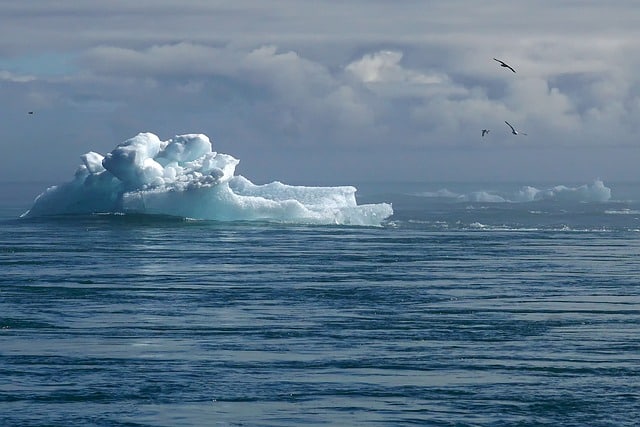The Unfolding Story of Climate Change: A Comprehensive Look
Climate change is no longer a distant threat; it’s a tangible reality we’re all experiencing. From extreme weather events to rising sea levels, the planet’s climate is undergoing a significant shift, with far-reaching consequences for all life on Earth. This post delves into the multifaceted issue of climate change, exploring its causes, impacts, and potential solutions.
Understanding the Fundamentals
Climate change refers to the long-term shifts in global weather patterns, including temperature, precipitation, and wind patterns, primarily driven by human activities. The primary culprit? The burning of fossil fuels, which releases greenhouse gases like carbon dioxide, methane, and nitrous oxide into the atmosphere. These gases trap heat, causing the planet to warm up.
The Science Behind the Phenomenon
The Intergovernmental Panel on Climate Change (IPCC), a leading international body for the assessment of climate change, has concluded that “it is extremely likely that human influence has been the dominant cause of the observed warming since the mid-20th century.” This conclusion is supported by a vast body of scientific evidence, including:
* **Rising Global Temperatures:** The planet’s average temperature has increased by about 1 degree Celsius since the late 19th century, with the majority of this warming occurring since the 1970s.
* **Melting Ice Caps and Glaciers:** The polar ice caps are melting at an alarming rate, contributing to rising sea levels.
* **Increasing Sea Levels:** Global sea levels have risen by about 20 cm since the late 19th century, and the rate of rise is accelerating.
* **More Frequent and Severe Extreme Weather Events:** Heatwaves, droughts, floods, and wildfires are becoming more common and intense due to climate change.
Impacts of Climate Change
The impacts of climate change are already being felt around the world, and they are expected to intensify in the coming decades. Here are some key impacts:
* **Environmental Degradation:** Climate change threatens biodiversity, ecosystem health, and natural resources, including water, food, and air quality.
* **Health Concerns:** Heat waves, air pollution, and the spread of diseases are becoming significant health risks.
* **Economic Disruptions:** Climate change impacts infrastructure, agriculture, tourism, and other industries, leading to economic losses.
* **Social Displacement:** Rising sea levels and extreme weather events are forcing communities to relocate, creating displacement and conflict.
* **Global Security:** Climate change is a growing security threat, contributing to resource scarcity, instability, and conflict.
Mitigation and Adaptation Strategies
Addressing climate change requires a two-pronged approach: mitigating its effects by reducing greenhouse gas emissions and adapting to the changes that are already happening.
Mitigation Strategies:
* **Transitioning to Renewable Energy:** Shifting away from fossil fuels and embracing renewable energy sources like solar, wind, and hydropower is crucial.
* **Improving Energy Efficiency:** Reducing energy consumption through building efficiency, energy-saving appliances, and smart technologies is essential.
* **Sustainable Agriculture and Forestry:** Implementing practices that enhance carbon sequestration and reduce emissions from agriculture and forestry.
* **Carbon Capture and Storage:** Developing and deploying technologies to capture and store carbon emissions from industrial processes.
Adaptation Strategies:
* **Climate-Resilient Infrastructure:** Building infrastructure that can withstand extreme weather events and climate impacts.
* **Water Management:** Adapting water resources management to address changing rainfall patterns and water scarcity.
* **Sea Level Rise Mitigation:** Implementing coastal protection measures to reduce the impacts of rising sea levels.
* **Health Surveillance and Adaptation:** Developing public health strategies to address climate-related health risks.
Individual and Collective Action
While governments and industries bear a large responsibility for addressing climate change, individual actions also play a significant role. We can all contribute by:
* **Reducing our Carbon Footprint:** Conserving energy, adopting sustainable transportation, and reducing consumption.
* **Supporting Sustainable Businesses:** Choosing products and services from companies committed to environmental sustainability.
* **Advocating for Climate Action:** Engaging in political activism and supporting policies that promote climate action.
* **Spreading Awareness:** Educating ourselves and others about climate change and its impacts.
A Call for Collective Action
Climate change is a global challenge that requires collective action. Governments, businesses, and individuals must work together to mitigate its effects and adapt to the changes that are already happening. By embracing innovative solutions, fostering international cooperation, and taking personal responsibility, we can build a more sustainable and resilient future for generations to come.
This is a complex and multifaceted issue, and this blog post merely scratches the surface. For a more comprehensive understanding of climate change, its impacts, and potential solutions, it is crucial to consult credible scientific sources and stay informed about the latest developments. We must all play our part in addressing this critical issue and ensuring a sustainable future for our planet.
